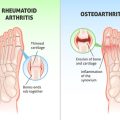Introduction to Family and Community Support in the UK
In the United Kingdom, family and community support are widely recognised as fundamental pillars in the rehabilitation journey. Whether someone is recovering from illness, injury, or managing a long-term condition, British social structures place significant emphasis on collective care and shared responsibility. This approach stems from deeply rooted societal values that highlight the importance of both immediate family involvement and wider community engagement. From local neighbourhood groups to national charities, these networks play a crucial role in providing emotional encouragement, practical assistance, and motivation throughout the rehab process. Understanding how these support systems operate within British society offers valuable insight into why individuals often experience greater success and sustained progress when surrounded by a supportive environment.
2. The Role of Family in British Rehabilitation
Within the UK, family involvement plays a pivotal role in the rehabilitation journey. Immediate and extended family members often provide a unique blend of emotional, practical, and motivational support that is deeply embedded within British cultural norms. This support system is shaped by both traditional values and modern expectations regarding health, independence, and community responsibility.
Emotional Support from Family Members
British families typically value resilience and emotional strength, but they also recognise the importance of open communication during challenging times such as rehabilitation. Family members are often present to offer encouragement, listen to concerns, and help manage stress or anxiety related to recovery. This emotional backing can significantly enhance a patients motivation and sense of hope.
Practical Assistance in Everyday Life
The practical contributions of family members range from helping with daily tasks—such as preparing meals or managing transport—to attending appointments and liaising with healthcare professionals. Extended family networks may become involved, especially when additional care or resources are needed. The table below highlights common forms of support provided by immediate versus extended family:
| Type of Support | Immediate Family | Extended Family |
|---|---|---|
| Emotional Encouragement | Daily check-ins, reassurance | Regular phone calls, visits |
| Practical Help | Meal prep, transportation | Childcare, household tasks |
| Healthcare Liaison | Accompanying to appointments | Providing information/resources |
| Motivational Support | Setting goals together | Cultural/family celebrations |
Cultural Factors Influencing Family Roles
The British approach to family support is influenced by factors such as regional diversity, generational expectations, and multicultural backgrounds. In some areas, tight-knit communities reinforce collective responsibility for well-being, while in others, there is a stronger emphasis on individual autonomy. Additionally, British etiquette often encourages maintaining privacy and dignity throughout the rehab process—a balance that families strive to respect while providing meaningful support.
Navigating Challenges Together
Cultural attitudes towards asking for help can sometimes create barriers; however, recent shifts towards openness about mental health and disability are encouraging families to play an even more active role in rehabilitation. Ultimately, the interplay between British social values and familial bonds serves as a powerful motivator for individuals undergoing rehab, helping them regain confidence and independence.

3. Community Structures and Their Impact
The UK boasts a robust network of community resources that play a pivotal role in supporting individuals undergoing rehabilitation. These structures not only provide practical assistance but also foster motivation and enhance engagement throughout the recovery journey. One of the most significant pillars is the NHS community teams, which include physiotherapists, occupational therapists, social workers, and mental health professionals who work collaboratively to deliver tailored care within local settings. Their holistic approach ensures that patients receive support not just medically, but also socially and emotionally.
Beyond formal healthcare provision, local support groups form an essential part of British community life. Whether condition-specific—such as stroke or Parkinson’s groups—or broader in scope, these groups offer a safe space for individuals to share experiences, receive encouragement, and develop coping strategies. The sense of belonging fostered by these gatherings can be profoundly motivating, reducing feelings of isolation and promoting accountability among members.
Charitable organisations are another cornerstone of the UK’s support landscape. Renowned charities like Age UK, Mind, and Scope provide invaluable services ranging from counselling to advocacy and practical help at home. They often fill gaps left by statutory services, ensuring that people in rehab have continuous access to resources that promote independence and wellbeing. Their community-based initiatives, such as befriending schemes and volunteer-led activities, further empower individuals to re-engage with society at their own pace.
Together, these diverse community structures underpin a culture of support that is uniquely British. By integrating professional guidance with peer networks and voluntary sector involvement, they create a comprehensive safety net. This collaborative environment does more than just address immediate needs—it actively inspires hope and determination in those facing the challenges of rehabilitation.
4. Social Motivators Unique to the UK
Rehabilitation in the UK is uniquely shaped by social motivators that stem from distinct British values and traditions. Understanding these motivators provides valuable insight into why individuals engage with and commit to their rehabilitation journey. Three key elements—community spirit, privacy, and volunteerism—significantly influence patient motivation and adherence to rehab programmes across the country.
Community Spirit: The Power of Belonging
British communities are often characterised by a strong sense of collective responsibility and belonging. Whether through local neighbourhood initiatives, support groups, or faith-based organisations, this community spirit can be a powerful motivator for individuals undergoing rehabilitation. Feeling part of a supportive network fosters encouragement and accountability, both of which are essential for long-term success.
Privacy: Respecting Individual Boundaries
The British value of privacy plays an important role in shaping how support is offered and received. Many people in the UK appreciate discretion when dealing with health challenges, including rehabilitation. This respect for personal boundaries often leads to more personalised and confidential support systems, where individuals feel safe to participate without fear of judgement or unwanted attention.
Volunteerism: A Tradition of Helping Others
Volunteerism is deeply embedded in British culture, with countless individuals offering their time to support others through charities, community groups, or the NHS. In the context of rehabilitation, volunteers often act as mentors or peer supporters, providing practical assistance and emotional encouragement. This tradition not only helps patients feel valued but also inspires them to stay engaged with their recovery.
Summary Table: Key British Social Motivators
| British Value | Description | Impact on Rehabilitation |
|---|---|---|
| Community Spirit | Sense of belonging and shared responsibility within local groups | Fosters encouragement, accountability, and ongoing support |
| Privacy | Emphasis on discretion and respect for personal boundaries | Promotes trust and willingness to participate in rehab programmes |
| Volunteerism | Strong culture of volunteering and peer support | Increases practical help and emotional motivation throughout recovery |
Tapping into Cultural Strengths for Better Outcomes
By recognising and embracing these unique British social motivators, healthcare professionals can better tailor rehabilitation programmes to meet individual needs. Harnessing community spirit, respecting privacy, and encouraging volunteer involvement create an environment where patients feel supported at every stage of their journey—ultimately improving motivation and outcomes in the UK context.
5. Barriers and Challenges within British Social Context
While family and community support play a vital role in motivating individuals during rehabilitation, it is essential to acknowledge the unique barriers and challenges that exist within the British social landscape. Social stigma surrounding certain health conditions—such as addiction, mental health issues, or disability—can significantly hinder an individual’s willingness to engage in rehab or seek help. This stigma often leads to feelings of shame or embarrassment, making people less likely to reach out for the very support that could aid their recovery.
Another prominent challenge is social isolation, particularly among older adults or those living in rural areas. In some communities across the UK, limited access to transport or local services can mean that individuals feel cut off from both family and wider community resources. This isolation not only impacts emotional wellbeing but can also decrease motivation and perseverance throughout the rehabilitation process.
Resource disparities present yet another barrier. While certain regions benefit from robust community networks and well-funded NHS rehabilitation services, others face shortages in skilled professionals, therapy spaces, or tailored programmes. These differences can affect how easily someone accesses support and maintains motivation. The situation may be further complicated by socioeconomic factors; financial stress or unemployment can make it difficult for families to offer consistent encouragement or practical assistance.
Additionally, cultural attitudes towards help-seeking vary across Britain. Some individuals may be reluctant to involve their family in their recovery due to privacy concerns or traditional beliefs about self-reliance. Others may find that language barriers or a lack of culturally appropriate services diminish their sense of belonging and support within the rehab environment.
Understanding these challenges is crucial for healthcare providers and support networks aiming to foster more inclusive and effective rehabilitation experiences. By addressing stigma, reducing isolation, and working towards greater equity in resources, British society can help ensure that everyone has the opportunity to achieve their best possible outcomes in rehab.
6. Strategies to Enhance Family and Community Support
For healthcare professionals working within the UK, fostering family and community support during rehabilitation is crucial for patient motivation and recovery outcomes. Below are practical recommendations that are mindful of British social dynamics and communication styles.
Encourage Open and Culturally Sensitive Communication
Start by building trust with both patients and their families. Use clear, respectful language, avoiding medical jargon where possible, and take time to understand each family’s values and concerns. In the UK, directness is often appreciated but should be balanced with politeness and empathy. Encourage questions, provide written information for reference, and offer regular updates on progress in a way that includes both the patient and their support network.
Promote Inclusive Family Involvement
Recognise the diversity of family structures across Britain—from single-parent households to extended kinship networks—and tailor involvement accordingly. Invite family members to participate in care planning meetings and therapy sessions when appropriate. Highlight the positive impact of their involvement while respecting boundaries and individual preferences.
Leverage Community Networks
Connect patients and families with local resources such as peer support groups, faith-based organisations, or community centres that reflect the multicultural fabric of British society. Work collaboratively with social prescribers, who can signpost patients to relevant community assets—from walking groups to arts activities—which can enhance motivation and reduce isolation.
Empower Through Education
Provide accessible education sessions on the nature of rehabilitation, expected challenges, and how families can offer meaningful support. Use culturally relevant examples that resonate with the British context—such as referencing local traditions or public services—to make information more relatable.
Create Supportive Environments Within Healthcare Settings
Design rehabilitation spaces that welcome family involvement, offering private areas for discussions and flexible visiting policies where feasible. Foster a team approach where multidisciplinary staff work together to address not just physical needs but also psychological and social wellbeing.
Evaluate and Adjust Support Strategies
Regularly seek feedback from patients and their families about the effectiveness of support measures. Be open to adapting approaches based on this feedback, recognising that what works for one community or family may differ for another. By being responsive and inclusive, healthcare professionals can significantly strengthen motivation throughout the rehabilitation journey within the unique tapestry of British society.


